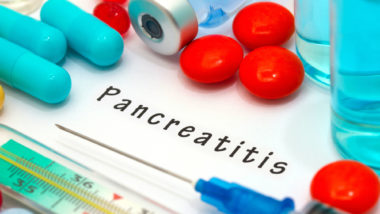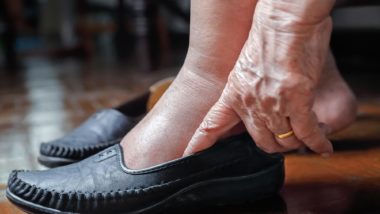Top Class Actions’s website and social media posts use affiliate links. If you make a purchase using such links, we may receive a commission, but it will not result in any additional charges to you. Please review our Affiliate Link Disclosure for more information.

Both drugs are SGLT2 inhibitors, which regulate blood sugar levels by redirecting excess sugar out of the body through the kidneys. As a result, excess sugar is excreted through the urine.
SGLT2 inhibitors have been linked to a variety of serious side effects since their introduction to the market in 2013. The latest FDA warning says patients are at a heightened risk of developing Fournier’s gangrene, a serious bacterial infection that starts in the perineum, which is the skin between the genitalia and the rectum. This flesh eating disease is serious.
Fournier’s gangrene is so rare that only six cases were reported between 1984 and 2013. All six diagnoses were in men who had been taking other medications for diabetes management.
Between March 2013 and May 2018, the FDA received 12 confirmed cases of Fournier’s gangrene, all in patients taking SGLT2 inhibitors. Of the 12 cases, seven were confirmed in men and five were found in women.
The FDA stated that the flesh eating disease occurred within several months of the patients beginning a protocol of SGLT2 inhibitors. Every patient required hospitalization and surgery. Some patients underwent several surgeries that the FDA described as “disfiguring.” One patient died.
Flesh Eating Disease Attacks Genital Area
“Fournier’s gangrene is an extremely rare but life-threatening bacterial infection of the tissue under the skin that surrounds muscles, nerves, fat, and blood vessels of the perineum,” explains the FDA announcement. “The bacteria usually get into the body through a cut or break in the skin, where they quickly spread and destroy the tissue they infect.”
As with most infections, patients with diabetes are an increased risk of developing the flesh eating disease. Adding the SGLT2 inhibitor to the equation increases the risk.
Over time, patients with diabetes can suffer from a decrease in blood flow throughout the body because high levels of blood sugar damage the blood vessels and encourage the accumulation of plaque. The decreased blood flow can inhibit the body’s ability to fight infection, including the flesh eating disease.
According to Diabetes in Control, the risk of infection raises in any patient who is on medication that redirects sugar through the urine. The FDA has previously issued a warning regarding the increased risk of serious urinary tract infections in patients taking SGLT2 inhibitors.
Drugs currently on the market in the SGLT2 inhibitor class that could heighten the risk of the flesh eating disease include:
- Glyxambi
- Invokana
- Invokamet
- Steglujan
- Farxiga
- Jardiance
- Qtern
- Xigduo XR
WebMD
offers several suggestions to lower the chances of contracting the flesh eating disease, including:
- Patients with diabetes should inspect their genital area for cuts or indications of infection, such as swelling or drainage.
- Overweight patients should attempt to reduce their weight.
- Patients who smoke, vape or chew tobacco should stop because nicotine damages and constricts blood vessels.
To reduce the risk of the flesh eating disease or any other type of infection, wash open wounds gently with soap and water. Wounds should be kept dry and clean until completely healed.
Join a Free Diabetes Medications & Flesh-Eating Infection Lawsuit Investigation
The type-2 diabetes medications linked to the flesh-eating infection include:
- Invokana
- Invokamet/Invokamet XR
- Farxiga
- Xigduo XR
- Qtern
- Jardiance
- Glyxambi
- Synjardy/Synjardy XR
- Steglato
- Segluromet
- Steglujan
If you or a loved one took one of the type-2 diabetes medications listed above and suffered from a flesh-eating genital infection, you may qualify to join this diabetes medication lawsuit investigation. Fill out the FREE form on this page for more information.
ATTORNEY ADVERTISING
Top Class Actions is a Proud Member of the American Bar Association
LEGAL INFORMATION IS NOT LEGAL ADVICE
Top Class Actions Legal Statement
©2008 – 2024 Top Class Actions® LLC
Various Trademarks held by their respective owners
This website is not intended for viewing or usage by European Union citizens.
Get Help – It’s Free
Join a Free Diabetes Medications & Flesh-Eating Infection Lawsuit Investigation
If you qualify, an attorney will contact you to discuss the details of your potential case at no charge to you.
PLEASE NOTE: If you want to participate in this investigation, it is imperative that you reply to the law firm if they call or email you. Failing to do so may result in you not getting signed up as a client or getting you dropped as a client.
E-mail any problems with this form to:
Questions@TopClassActions.com.
Oops! We could not locate your form.












